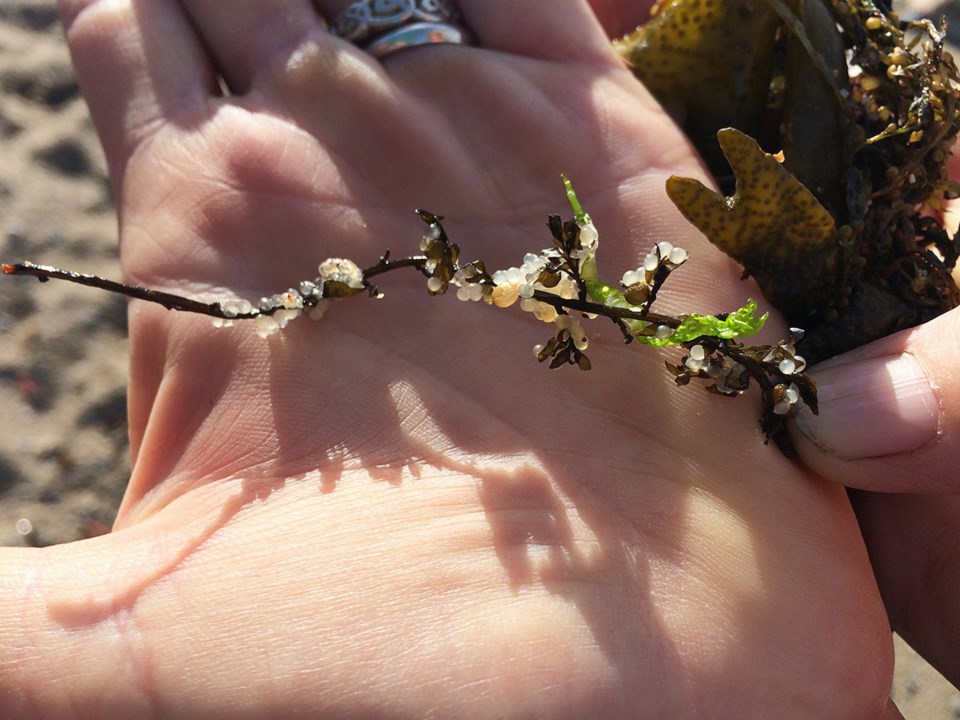The other day, the familiar “Ork, ork,” call of the California sea lions reverberated along the shoreline from the White Islets, announcing the arrival of herring spawn season.
The Sunshine Coast Friends of Forage Fish volunteer group would like to remind the public –especially all those gardeners – that herring spawn season is upon us. Herring are one of the forage fish species that spawn on the seaweeds that people collect for mulch for gardens.
As a practice, mulching is great, but when one chooses seaweed as mulch, a series of thoughtful decisions should be made beforehand.
February, March, and April are herring spawning months here on the Coast, and herring will often choose seaweeds as the “anchor” for their eggs. Even when the egg-laden seaweed gets broken off and washed up on the beach, those eggs can quite happily survive until the next high tide. By taking seaweeds during the spawning season, there is the potential to destroy thousands of herring eggs. None should be collected at this time.
Should one collect seaweeds at all? There are a lot of us in the world now, including the Sunshine Coast, and our cumulative impact is significant. That seaweed line (wrack line) is home to many small sea creatures and provides shelter, shade, and moisture between the tidal periods. Do you really need seaweed for mulch?
If you must collect seaweed as mulch for your garden, take only small amounts, and collect it over a large area to minimize the impact on this special area of our world and not during the months of February, March, and April.
The Sunshine Coast Friends of Forage Fish is a local volunteer group that has been diligently sampling Sunshine Coast beaches for the presence of forage fish eggs. Forage fish include Pacific sand lance, surf smelt, anchovy, herring, and many more schooling fishes, which are important food for larger species. The group has had findings of sand lance and surf smelt eggs, fish which spawn in the high tide area of several of our local beaches.
For more information or to volunteer with Friends of Forage Fish, contact Dianne Sanford, Volunteer Coordinator, email [email protected]. For more information about our group, visit www.friendsofforagefish.com.



